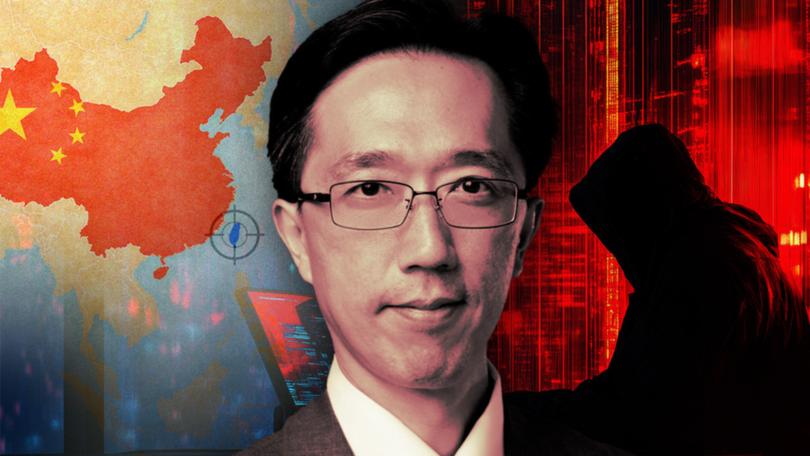Federal election 2025: Taiwan offers to help counter online disinformation in lead-up to poll
Taiwan’s top diplomat in Canberra says Taipei stands by to offer advice in tackling disinformation campaigns as Australia braces for a surge in conspiracy theories and fake news ahead of the election.

Taiwan’s top diplomat in Canberra has said Taipei stands by to offer Australia advice in tackling disinformation campaigns as the nation braces for a surge in conspiracy theories and fake news in the run up to the Federal election.
The Australian Electoral Commission has expanded its efforts to counter false or misleading information about the voting process, with a “Stop and Consider” campaign designed to help voters spot AI deep fakes and false rumours on the internet.
After spending years on the front lines against cyber-attacks and online propaganda campaigns, Taiwan has become a world leader in identifying and tackling disinformation and is already exchanging information with the UK and other European nations about its strategy.
Sign up to The Nightly's newsletters.
Get the first look at the digital newspaper, curated daily stories and breaking headlines delivered to your inbox.
By continuing you agree to our Terms and Privacy Policy.The Taiwanese had developed a strong mechanism for independent fact-checking groups to work hand in hand with government ministries to quickly stamp out fake news, explained Douglas Hsu, Taiwan’s chief Representative to Australia, in an exclusive interview with The Nightly.
“One thing that Taiwan has done pretty well is that our NGOs actually play a very important role to (create) check mechanisms through social media, through different chat groups - making sure that dis- or misinformation won’t spread around without any clarification or follow up,” he said.
Taiwan’s independent fact-checkers did not want direct government financial support but worked with ministry officials to circulate immediate clarifications and rebuttals to fake news as soon as it appeared online, Mr Hsu explained.
“When I worked in Taipei, we were requested to respond to any misinformation within the first hours,” he said. “We have to immediately come up with a clarification to provide the right information to the general public.”
Private sector companies were also part of a collective effort to prevent “society being undermined by any kind of misinformation,” said Mr Hsu, adding that Taiwan had shared details of its efforts with Australian think tanks and officials after its own election last year.
“How to counter disinformation with the digital technology is something that we are willing to share with everybody who has the same issues,” he said.
Labor MP David Smith, who visited Taiwan in 2023 on a bipartisan parliamentary delegation, signalled the door was open to offers of help in fighting attempts to mislead the public with fake news.
“One of the key challenges facing democracies across the world is finding ways to counter disinformation. Learning from others with real experience is more than welcome, it is critical,” he said.
Sitting just 130 kilometres from China, Taiwan has honed its efforts eradicate disinformation while coming under the greatest onslaught of cyber-attacks in the world.
Cyber-attacks on Taiwan government departments doubled in 2024 from the previous year to an average of 2.4 million attacks a day, the island’s National Security Bureau said in January, revealing that most were launched by Chinese cyber forces.
The Chinese state routinely denies being involved in hacking attacks, but reports of cognitive warfare often coincide with Chinese military drills around the island of 23.5 million — or intensify during Taiwan’s democratic elections.
The Chinese Communist Party claims Taiwan as its own territory, despite never having ruled there, and has threatened to invade the democracy if it does not cede to Beijing’s demands to unify.
Taiwan, meanwhile, operates like any other nation, with its own government, foreign and trade policy, military and currency.
Australia does not have an official diplomatic relationship with Taipei but enjoys strong ties with the semiconductor powerhouse, which is its seventh-largest trading partner.
Similar to the United States, Australia’s “One China Policy” acknowledges China’s claim over Taiwan but does not recognise it.
Taiwan’s disinformation strategy, dubbed “nerd immunity” by former digital minister Audrey Tang, in a nod to “inoculating” the public from false claims, often using humour to dispel fake news.
During the pandemic, when misleading information about face mask material causing toilet paper shortages sparked a round of panic buying, the government issued a humorous meme of Taiwan’s premier shaking his bottom at the fake rumours.
On Friday, the AEC said Australia’s biggest online risk during the election campaign was likely to come from domestic conspiracy theorists and not foreign actors.
AEC commissioner Jeff Pope urged voters to be sceptical of what they see online in the run-up to the Federal poll.
“Our experience would indicate that we’re doing this to ourselves which is one of the sad things about how some of this plays out … it’s right across all elements of society,” he said.
“We’re seeing sovereign citizens and conspiracy theorists and keyboard warriors who don’t want to reveal their identity but they do want to stir the pot.”
